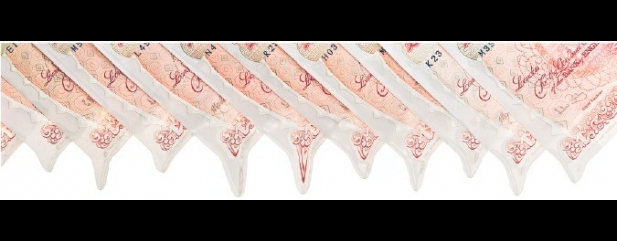Archived article
Please note that tax, investment, pension and ISA rules can change and the information and any views contained in this article may now be inaccurate.
Why sterling's meltdown could get worse and what that would mean

The latest sterling meltdown has sparked bleak projections of a plunge in the pound to 34-year lows if the UK leaves the European Union with no deal in place.
The Bloomberg poll of analysts at 13 banks found that the chances of a divorce without an agreement now stands at 30%, three-times the level of a similar survey in February. The impact of such an outcome could cut the sterling/dollar rate as low as $1.10, its lowest in a generation.
The pound has weakened sharply over recent days with the market waking up to the reality of a new UK government, its rather combative stance on the current UK/EU Brexit deal and its open remarks on the rising probability of a no-deal Brexit.
‘Politics should remain the key negative for sterling in the months to come,’ say analysts at investment bank ING, putting risk to the pound ‘heavily skewed to the downside.’
Sterling skidded to a 30-month low against the dollar, below $1.21 as fund managers, industry executives and Bank of England governor Mark Carney all lined up to warn about the hit to the economy of a no-deal Brexit under new prime minister Boris Johnson.
WHO WINS FROM WEAK STERLING?
UK exporters are obvious beneficiaries, including many of the UK’s largest stock market listed companies. A weak pound makes goods and services sold abroad more competitive because they are cheaper to buy for overseas customers.
Around 70% of FTSE 100 company earnings are imported from outside the UK, industrial and consumer good companies like Rools-Royce (RR.) and Unilever (ULVR) are good examples.
This also gives a boost to revenue and profit earned by UK companies from overseas once they are converted back in sterling. Commodity giants score highly here given raw materials like oil, iron ore and copper are priced in dollars.
WHAT’S THE DOWNSIDE OF A WEAK POUND?
At this time of year most people will focus on how much more their summer holidays will cost and how to stretch the budget when abroad, but the impact goes far deeper.
A weak pound makes imports like food, clothing and electrical goods more expensive, while upping the cost of filling the car on the petrol forecourt.
For investors weak sterling is also leading to the drying up of investment flows into UK funds and stocks.
‘We’re seeing a marked shift out of Britain and into mainland Europe by international fund managers,’ said Steven Holden, chief executive of Copley Fund Research. ‘The weakening pound is certainly the major contributor to the decline in UK stock allocations but it reflects caution over Brexit from an equity perspective too.’
According to the Copley funds survey the UK’s portion of global equity funds has dropped to its lowest since 2011 when the fund research firm started tracking flows.
The study found that the UK’s portion of global equity funds has fallen to 7.87%, from a peak of 11.5% in 2011, when Copley started the survey.
Important information:
These articles are provided by Shares magazine which is published by AJ Bell Media, a part of AJ Bell. Shares is not written by AJ Bell.
Shares is provided for your general information and use and is not a personal recommendation to invest. It is not intended to be relied upon by you in making or not making any investment decisions. The investments referred to in these articles will not be suitable for all investors. If in doubt please seek appropriate independent financial advice.
Investors acting on the information in these articles do so at their own risk and AJ Bell Media and its staff do not accept liability for losses suffered by investors as a result of their investment decisions.

 magazine
magazine









